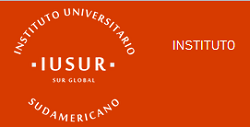The commitment of the Mexican government and Higher Education Institutions to the 2030 Agenda
DOI:
https://doi.org/10.25087/resur15a8Keywords:
Higher Education, Politics, 2030 Agenda, Sustainable DevelopmentAbstract
The purpose of this paper is to analyze the commitment and actions of the Mexican government and Higher Education Institutions with the 4th Sustainable Development Goal of the 2030 Agenda to achieve quality, inclusive, equitable education that promotes learning throughout life. The Sustainable Development approach for higher education (United Nations, 1998; UNESCO, 2015) and the notion of University Social Responsibility (ANUIES, 2020) are used as a conceptual framework. The methodology followed is the policy process approach (Aguilar, 1993) for the study of the 2030 Agenda and the implementation of policies.
The results expose limited actions and programs of the Mexican government with the 2030 Agenda and the 4th Sustainable Development Goal despite the current narrative of "leaving no one behind" and raising higher education to constitutional status. In the case of higher education institutions, their internal commitment in their substantive and adjective functions has been insufficient, as have the actions in the region where they are located to promote Sustainable Development. Therefore, there is an urgent need for greater leadership, commitment and university social responsibility.
Downloads
References
Aguilar Villanueva, L.F. (1993) Problemas públicos y agenda de gobierno. Porrúa. México.https://negociacionytomadedecisiones.files.wordpress.com/2016/04/l0001_problemas-publicos-y-agenda-de-gobierno.pdf
Alzate Zuluaga, Mary Luz; Romo Morales, Gerardo (2017). La agenda pública en sus teorías y aproximaciones metodológicas. Una clasificación alternativa. Enfoques: Ciencia política y administración pública. Volumen, 15, núm. 26. https://www.redalyc.org/pdf/960/96052974002.pdf
ANUIES (2016). Plan de Desarrollo Institucional. Visión 2030. http://www.anuies.mx/media/docs/avisos/pdf/PlanDesarrolloVision2030_v2.pdf
ANUIES (2018) Visión y Acción 2030. Propuesta de la ANUIES para renovar la educación superior en México. Diseño y concertación de políticas públicas para impulsar el cambio institucional. ANUIES, México. http://www.anuies.mx/media/docs/avisos/pdf/VISION_Y_ACCION_2030.pdf
ANUIES (2020) Contribución de las instituciones de educación superior en México al logro de los Objetivos de Desarrollo Sostenible. ANUIES, México. http://www.anuies.mx/media/docs/avisos/pdf/Contribuci %C3 %B3n_de_las_IES_a_los_ODS.pdf
Asamblea de las Naciones Unidas (21 de octubre del 2015). Transformar nuestro mundo: la agenda 2030 para el Desarrollo Sostenible. https://www.un.org/ga/search/view_doc.asp?symbol=A/RES/70/1&Lang=S
Campus (14 de diciembre del 2021). Trabaja la UNAM reporte sobre investigación de Universidades Mexicanas y los ODS. Suplemento sobre educación superior. México https://suplementocampus.com/trabaja-la-unam-reporte-sobre-investigacion-de-universidades-mexicanas-y-los-ods/
CONEVAL (30 de agosto del 2020) Avances y retos del programa universidades para el bienestar Benito Juárez García. Comunicado 20. CONEVAL, universidades del bienestar social, evaluación. https://www.coneval.org.mx/SalaPrensa/Comunicadosprensa/Documents/2020/Comunicado_20_UNIVERSIDADES_BENITO_JUAREZ.pdf
Diario Oficial de la Federación (DOF) (2019). Decreto por el que se crea el organismo público descentralizado denominado organismo Coordinador de las Universidades para el Bienestar Benito Juárez García. https://framework-gb.cdn.gob.mx/applications/ubbj/basicos/Decreto_de_creacion.pdf
Diario Oficial de la Federación (DOF) (21/12/2021). Acuerdo número 38/12/2021 por el que se emiten las reglas de operación del Programa Jóvenes Escribiendo el Futuro para el ejercicio fiscal 2022. https://www.gob.mx/cms/uploads/attachment/file/690356/Jo_venes_Escribiendo_el_Futuro.pdf
Eastmond, Amarella (2005). La sociedad del conocimiento, el desarrollo sustentable y el papel de la educación superior en México en el fomento de la cultura ambiental. Revista de la Educación Superior, 34 (4) (136) ,65-76. https://www.redalyc.org/articulo.oa?id=60413605
Fernández, Ana (2018) Educación para la Sostenibilidad: Un nuevo reto para el actual modelo universitario. Research, Society and development. Vol. 7, Núm. 4. https://www.redalyc.org/journal/5606/560659011001/560659011001.pdf
Flores Crespo, P. y García, C. (2021). Análisis de la política en Educación Superior ¿Cambio, continuidad o regresión? ANUIES, UAQ, UABC. México.
Gobierno de la República (2016) 4to informe de gobierno 2015-2016. Resumen ejecutivo.https://backend.aprende.sep.gob.mx/media/uploads/proedit/resources/cuarto_informe_de_go_9089c2d2.pdf
Gobierno de la República (2017). 5to informe de Gobierno 2016-2017. Resumen ejecutivo. México.
Gobierno de la República, Presidencia de la República (2021) 3 informe de Gobierno 2020 y 2021. Presidencia. Ciudad de México. https://presidente.gob.mx/wp-content/uploads/2021/09/TERCER-INFORME-DE-GOBIERNO-PRESIDENTE-AMLO-01-09-21.pdf
Gobierno de los Estados Unidos Mexicanos (2018). Sexto Informe de gobierno 2017-2018. Resumen ejecutivo. http://sil.gobernacion.gob.mx/Archivos/Documentos/2018/09/asun_3730635_20180901_1535843813.pdf
Guevara, G. (2021). La regresión educativa. La hostilidad de la 4T contra la ilustración. Grijalbo, México.
IESALC (2020) Contribución de la educación superior a los objetivos de desarrollo sostenibles: marco analítico. IESALC, UNESCO. Venezuela. https://www.iesalc.unesco.org/2020/02/17/contribucion-de-la-educacion-superior-a-los-objetivos-de-desarrollo-sostenible-marco-analitico/
International Association Universities [IAU] (1998) La Educación Superior y el Desarrollo Humano Sostenible. Paris. https://unesdoc.unesco.org/ark:/48223/pf0000113689_spa
Martinón Quintero, Ruth (2007). La incorporación de las ideas al análisis de políticas públicas en el marco de las coaliciones promotoras. Gestión y Política Pública 16 (2), 281-318 https://www.redalyc.org/articulo.oa?id=13316202
Moreno, Iván (01 de abril del 2022) Educación: de la esperanza a la frustración. Campus Milenio. Suplemento Universitario. https://www.milenio.com/opinion/carlos-ivan-moreno-arellano/prospectivas/educacion-de-la-esperanza-a-la-frustracion
Secretaría de Educación Pública (SEP) (s/a) Programa Sectorial de Educación 2020-2024. https://www.planeacion.sep.gob.mx/Doc/planeacion/mediano_plazo/pse_2020_2024.pdf
Times Higher Education (THE) (2022). Impact Ranking 2022: Quality education. THE. https://www.timeshighereducation.com/rankings/impact/2022/quality-education#!/page/2/length/25/locations/MEX/sort_by/rank/sort_order/asc/cols/undefined
UNESCO (2015). Desglosar el Objetivo de Desarrollo Sostenible 4 Educación 2030. Guía para desglosar el ODS 4 – Educación. México. P. 36. Recuperado de: http://www. fundacioncives.org/rec/recursos/desglosar-el-objetivo-de-desarrollo-sostenible-4- educacion-2030.html
UNESCO (2016) Educación 2030: Declaración de Incheon y Marco de Acción para la realización del objetivo de Desarrollo Sostenible 4. Garantizar una educación inclusiva y equitativa de calidad y promover oportunidades de aprendizaje permanente para todos. https://unesdoc.unesco.org/ark:/48223/pf0000245656_spa
UNESCO (2017). Objetivos de Desarrollo Sostenible. Desglosar el Objetivo de Desarrollo Sostenible 4. Guía. Educación 2030. México, 2017.
Published
How to Cite
Issue
Section
License
Copyright (c) 2023 César García-García

This work is licensed under a Creative Commons Attribution-ShareAlike 4.0 International License.










